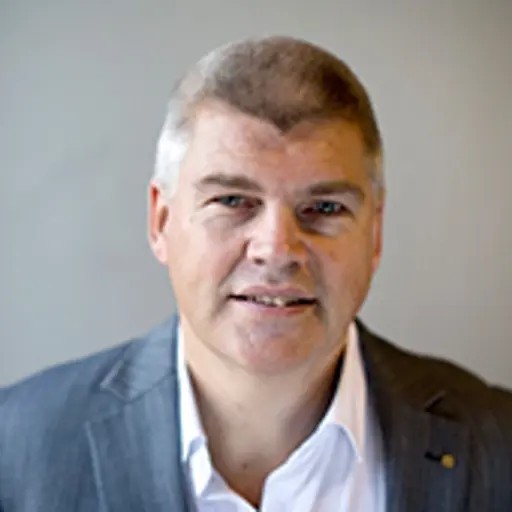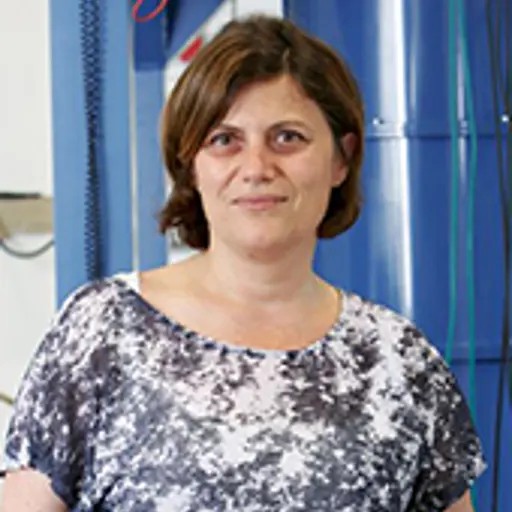
The Nobel Prize in Physics 2025 has been awarded to researchers with close ties to Chalmers University of Technology: John Clarke, Michel H. Devoret, and John M. Martinis. At Chalmers, research in quantum physics strongly resonates with the discoveries recognized by this year’s prize – and the laureates have strong ties to the national research program Wallenberg Centre for Quantum Technology (WACQT), coordinated by Chalmers.
The 2025 Nobel Prize in Physics honors John Clarke, Michel H. Devoret, and John M. Martinis for their significant contributions to quantum mechanics. The news was received with great enthusiasm at the Department of Microtechnology and Nanoscience at Chalmers University of Technology. The department not only conducts leading research and education in quantum technology, applied quantum physics, and quantum device physics, the laureates have over the years held several different roles at Chalmers, including serving as visiting researchers within the quantum technology research program WACQT, the Wallenberg Centre for Quantum Technology.

Per Delsing, Professor of quantum technology at Chalmers, has spent nearly 40 years exploring the possibilities and limitations of quantum mechanics. Throughout his professional career and as former Director of WACQT, he has had the opportunity to collaborate and build close relationships with the laureates.
“It’s of course fantastic that this year’s prize is awarded to pioneers in the field of quantum technology. It’s especially exciting that two of the laureates, John Clarke and John Martinis, have both been visiting researchers within WACQT,” he says.
Between 2020 and 2023, John Clarke was a visiting researcher within the WACQT program on three separate occasions. He was also appointed Jubilee Professor at Chalmers in 2008. John Clarke first connected with Tord Claeson, Professor Emeritus of quantum component physics at Chalmers, back in the 1970s. Since then, he has remained a close collaborator and a frequent visitor to the university. John M. Martinis has likewise contributed to WACQT as a visiting researcher during a dedicated period. All Nobel laureates have actively engaged with Chalmers through participation in Nobel symposia hosted by the university, and have served as faculty opponents during PhD defenses at the Department of Microtechnology and Nanoscience.
From impossible experiment to Nobel prize
The laureates are recognized “for the discovery of macroscopic quantum mechanical tunneling and energy quantisation in an electrical circuit.”
"The laureates' experiments showed that superconducting circuits can behave quantum mechanically and that they can have discrete energy levels, which are absolute prerequisites for creating superconducting qubits," says Per Delsing.
The field has long been of great importance to several researchers at the department – not least to Floriana Lombardi, Professor at the Quantum Device Physics Laboratory at Chalmers. The early milestones of her career are directly linked to this year’s prize.

“About twenty years ago, my colleague Thilo Bauch and I published two scientific papers in which we demonstrated that quantum effects can be observed in macroscopic systems – more specifically, by observing macroscopic quantum tunneling and energy-level quantization in Josephson junctions made of unconventional superconductors, materials with much higher critical temperatures than traditional elemental ones,” says Floriana Lombardi and continues:
“At the time, our experiment was considered impossible to achieve. These superconductors, discovered in the late 1980s, had unusual properties and an unconventional order parameter. This led most researchers to believe that such fundamental macroscopic quantum effects would be impossible.”
The results published by Floriana Lombardi and Thilo Bauch were the outcome of a global effort at Chalmers that built on the strong expertise in quantum measurements, which has served as an incubator for WACQT. Their work provided the first experimental evidence that unconventional superconductors can host the same macroscopic quantum effects previously believed to be exclusive to conventional systems.
“This was a turning point, showing that these new superconductors can be used for cutting-edge quantum physics – an achievement that has now been recognized at the highest level,” she concludes.
- Full Professor, Quantum Technology, Microtechnology and Nanoscience
- Full Professor, Quantum Device Physics, Microtechnology and Nanoscience

